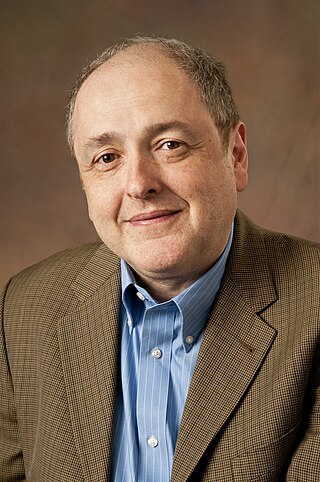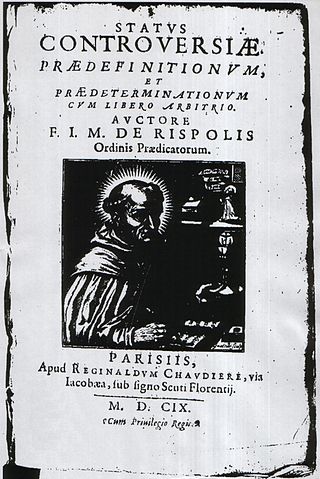Related Research Articles

Noah Thomas Porter III was an American Congregational minister, academic, philosopher, author, lexicographer and an outspoken anti-slavery activist. Porter Mountain, of the Adirondack Mountains, was named for him after he was the first to climb it in 1875. He was President of Yale College (1871–1886).

Patricia Smith Churchland is a Canadian-American analytic philosopher noted for her contributions to neurophilosophy and the philosophy of mind. She is UC President's Professor of Philosophy Emerita at the University of California, San Diego (UCSD), where she has taught since 1984. She has also held an adjunct professorship at the Salk Institute for Biological Studies since 1989. She is a member of the Board of Trustees Moscow Center for Consciousness Studies of Philosophy Department, Moscow State University. In 2015, she was elected a Fellow of the American Academy of Arts & Sciences. Educated at the University of British Columbia, the University of Pittsburgh, and Somerville College, Oxford, she taught philosophy at the University of Manitoba from 1969 to 1984 and is married to the philosopher Paul Churchland. Larissa MacFarquhar, writing for The New Yorker, observed of the philosophical couple that: "Their work is so similar that they are sometimes discussed, in journals and books, as one person."

Nicholas Paul Wolterstorff is an American philosopher and theologian. He is currently Noah Porter Professor Emeritus of Philosophical Theology at Yale University. A prolific writer with wide-ranging philosophical and theological interests, he has written books on aesthetics, epistemology, political philosophy, philosophy of religion, metaphysics, and philosophy of education. In Faith and Rationality, Wolterstorff, Alvin Plantinga, and William Alston developed and expanded upon a view of religious epistemology that has come to be known as Reformed epistemology. He also helped to establish the journal Faith and Philosophy and the Society of Christian Philosophers.
Mrinal Miri is an Indian philosopher and educationalist.

Paul Joseph Salomon Benacerraf was a French-born American philosopher working in the field of the philosophy of mathematics who taught at Princeton University his entire career, from 1960 until his retirement in 2007. Benacerraf was appointed Stuart Professor of Philosophy in 1974, and retired as the James S. McDonnell Distinguished University Professor of Philosophy.

Marilyn McCord Adams was an American philosopher and Episcopal priest. She specialized in the philosophy of religion, philosophical theology, and medieval philosophy. She was Horace Tracy Pitkin Professor of Historical Theology at Yale Divinity School from 1998 to 2003 and Regius Professor of Divinity at the University of Oxford from 2004 to 2009.

Helen Mary Warnock, Baroness Warnock, was an English philosopher of morality, education, and mind, and a writer on existentialism. She is best known for chairing an inquiry whose report formed the basis of the Human Fertilisation and Embryology Act 1990. She served as Mistress of Girton College, Cambridge from 1984 to 1991.
Patrick Colonel Suppes was an American philosopher who made significant contributions to philosophy of science, the theory of measurement, the foundations of quantum mechanics, decision theory, psychology and educational technology. He was the Lucie Stern Professor of Philosophy Emeritus at Stanford University and until January 2010 was the Director of the Education Program for Gifted Youth also at Stanford.
Women have made significant contributions to philosophy throughout the history of the discipline. Ancient examples of female philosophers include Maitreyi, Gargi Vachaknavi, Hipparchia of Maroneia and Arete of Cyrene. Some women philosophers were accepted during the medieval and modern eras, but none became part of the Western canon until the 20th and 21st century, when some sources indicate that Simone Weil, Susanne Langer, G.E.M. Anscombe, Hannah Arendt, and Simone de Beauvoir entered the canon.
Jason Stanley is an American philosopher who is the Jacob Urowsky Professor of Philosophy at Yale University. He is best known for his contributions to philosophy of language and epistemology, which often draw upon and influence other fields, including linguistics and cognitive science. He has written for popular audiences in The New York Times, The Guardian, The Washington Post, Rolling Stone, The New Republic, and many other publications in the United States and abroad. In his more recent work, Stanley has brought tools from philosophy of language and epistemology to bear on questions of political philosophy, for example in his 2015 book How Propaganda Works, and his 2023 book, The Politics of Language.

Syed Zafarul Hasan was a prominent twentieth-century Pakistani Muslim philosopher.
John Joseph Haldane is a British philosopher, commentator and broadcaster. He is a former papal adviser to the Vatican. He is credited with coining the term 'analytical Thomism' and is himself a Thomist in the analytic tradition. Haldane is associated with The Veritas Forum and is the current chair of the Royal Institute of Philosophy.

Julian Baggini is an English philosopher, journalist and the author of over 20 books about philosophy written for a general audience. He is co-founder of The Philosophers' Magazine, and has written for numerous international newspapers and magazines. In addition to writing on the subject of philosophy he has also written books on atheism, secularism and the nature of national identity. He is a patron of Humanists UK, an organization promoting secular humanism.

Stoicism is a school of Hellenistic philosophy that flourished in Ancient Greece and Ancient Rome. The Stoics believed that the practice of virtue is enough to achieve eudaimonia: a well-lived life. The Stoics identified the path to achieving it with a life spent practicing the four cardinal virtues in everyday life — prudence, fortitude, temperance, and justice — as well as living in accordance with nature. It was founded in the ancient Agora of Athens by Zeno of Citium around 300 BCE.
The University of Western Ontario Faculty of Education, branded as Western Education since 2011, is the school of education of the University of Western Ontario in London, Ontario, Canada.

Brian Leiter is an American philosopher and legal scholar who is Karl N. Llewellyn Professor of Jurisprudence at the University of Chicago Law School and founder and Director of Chicago's Center for Law, Philosophy & Human Values. A review in Notre Dame Philosophical Reviews described Leiter as "one of the most influential legal philosophers of our time", while a review in The Journal of Nietzsche Studies described Leiter's book Nietzsche on Morality (2002) as "arguably the most important book on Nietzsche's philosophy in the past twenty years."
1970 in philosophy

Philosophy in Malta refers to the philosophy of Maltese nationals or those of Maltese descent, whether living in Malta or abroad, whether writing in their native Maltese language or in a foreign language. Though Malta is not more than a tiny European island in the middle of the Mediterranean Sea, for the last six centuries its very small population happened to come in close contact with some of Europe's main political, academic and intellectual movements. Philosophy was among the interests fostered by its academics and intellectuals.
2017 in philosophy
Sophie Bosede Oluwole was a Nigerian professor and philosopher, and was the first doctorate degree holder in philosophy in Nigeria. She was a practitioner of Yoruba philosophy, a way of thinking which stems from the ethnic group based in Nigeria. She was vocal about the role of women in philosophy, and the underrepresentation of African thinkers in education.